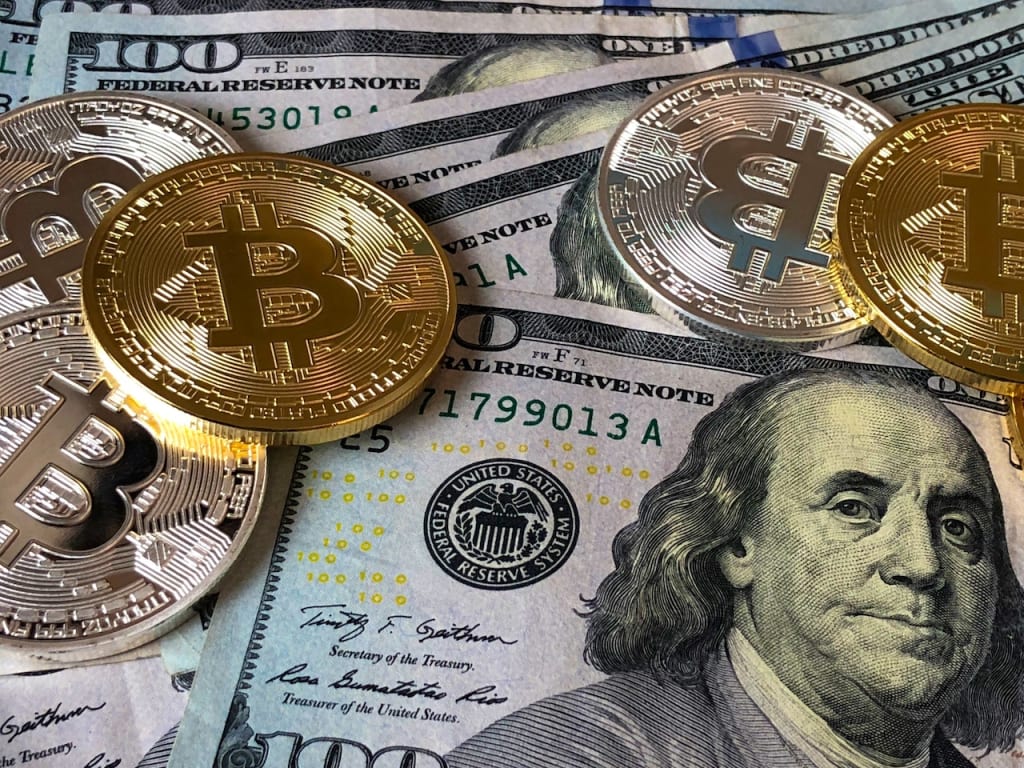Bitcoins and Cryptocurrency
Cryptocurrency

Recently, the Bitcoin cryptocurrency surpassed the value of $20,000. Bitcoin price has been volatile, with no clear explanation for the rise at this time. A cryptocurrency is a special type of virtual currency that is decentralized and secured by cryptographic cryptography. Bitcoin, Ethereum, and Ripple are well-known examples of cryptocurrencies. Basic Introduction: Bitcoin is a digital currency that can be paid instantly to anyone. The first Bitcoin was launched in 2009. Bitcoin is based on an open-source protocol and is not issued by a central authority. The Story: The origin of Bitcoin is unclear, as is its creator. An individual or group posing as Satoshi Nakamoto allegedly developed an accounting system after the 2008 financial crisis. Purpose: Bitcoin was originally intended to provide an alternative to fiat currency and to provide a generally direct medium of exchange. accepted. the two parties involved. Fiat currencies are government currencies that are not backed by commodities such as gold. This gives central banks greater control over the economy because they can control the amount of money they print. Most modern banknotes, such as US dollars and Indian rupees, are legal tender. Bitcoin Record (Blockchain): All transactions made to date are stored on an open public ledger, but in an anonymous and encrypted form, called blockchain. Transactions can be denominated in Bitcoin units. Satoshi is the smallest Bitcoin unit. Blockchain is an immutable shared ledger that facilitates the process of recording transactions and tracking assets on corporate networks. Assets can be tangible (house, car, money, land) or intangible (intellectual property, patents, copyrights, trademarks). Almost anything of value can be tracked and performed on a blockchain network, reducing risk and cost for everyone involved. A simple analogy for understanding blockchain technology is Google Docs. When one person creates a file and shares it with multiple people, the file is distributed without being copied or transferred. This creates a decentralized distribution chain where everyone can access the document simultaneously. It should be noted that other uses and applications of blockchain technology have emerged in recent years. The state governments of Andhra Pradesh and Telangana have established national registries for blockchain technology due to its easy traceability. Electoral Commission (EC) officials are exploring the possibility of remote voting using blockchain technology. Earn Bitcoins: If you have the computing power, you can mine new Bitcoins, buy them on exchanges, or acquire them through peer-to-peer OTC transactions. Miners are those who validate bitcoin transactions and use hardware to secure the network. The bitcoin protocol is designed to create new bitcoins at a fixed rate. No developer has the right to modify the system to increase revenue. Unique Features Only 210,000 Bitcoins will be created. Bitcoin exchanges operate like banks, where people can buy and sell bitcoins for traditional currencies. The price of Bitcoin constantly fluctuates based on supply and demand. Bitcoin Regulation: The supply of Bitcoin is bound by software and system contracts and cannot be manipulated by governments, banks, organizations or individuals. Bitcoin is designed to be a decentralized global currency, and a central authority overseeing it would effectively undermine that goal. It should be noted that governments around the world are investing in the development of central bank digital currencies (CBDCs), which are digital versions of national currencies. Legality of bitcoin (or cryptocurrencies) in India: In the Budget Speech 2018-19, the Minister of Finance announced that the government does not consider cryptocurrencies to be legal tender and will take all necessary measures to prevent them from being used to fund illegal activities or as part of the payment system. In April 2018, the Reserve Bank of India (RBI) notified entities regulated by it not to deal in virtual currencies or provide services to facilitate the processing or settlement of virtual currencies by any person or entity. However, the Supreme Court overturned the ban on virtual currency (VC) trading imposed by the Reserve Bank of India. The Supreme Court has ruled that cryptocurrencies are commercial in nature and therefore cannot be banned. Possible reasons for the increase in value of Bitcoin: Increased adoption during the pandemic. Global legitimacy of major players such as payment company PayPal and Indian banks such as State Bank of India, ICICI Bank, HDFC Bank and Yes Bank. Some pension and insurance funds are invested in Bitcoin.





Comments
There are no comments for this story
Be the first to respond and start the conversation.